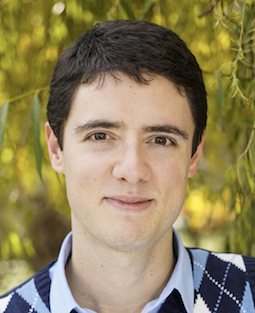 Dr. Alberto Bardi
Dr. Alberto Bardi
Areas of specialization:
History of Astronomy, Philosophy of Science, Christian-Muslims-Jews Relationships, Historical Epistemology
Areas of competence:
History of Science, Medieval and Byzantine Studies, Renaissance Studies, Greek and Latin Philology, Paleography, and Codicology
Alberto Bardi’s research project, Philosophy and History of Cross-Cultural Encounters between Christians, Muslims, and Jews in Byzantine Astronomy, at the Polonsky Academy of the Van Leer Jerusalem Institute (2019 – present) explores the cross-cultural exchanges of scientific ideas and materials between Christians, Muslims, and Jews in the Eastern Roman Empire and neighbor civilizations of the Eastern Mediterranean in the Middle-Ages and early Renaissance. The contacts between Eastern Christians (Byzantines) and Western Christian, Muslim, and Jewish scholars led to the production of numerous astronomical works, including tables, handbooks, comparisons and translations. This field remains little explored, and there is still much to be assessed in its complexity and consequences for politics, philosophy, and theology. A survey of a wide variety of texts is therefore necessary to assess almost nearly a millennium of scientific exchanges between Christians, Muslims, and Jews from the fifth to the sixteenth centuries. This is precisely the span and subject of his project.
Alberto Bardi has been a fellow at the Max-Planck Institute for the History of Science in Berlin and at the Harvard University research institute Dumbarton Oaks.
Publications:
Scientific Interactions in Colonial, Multilinguistic, and Interreligious Contexts: Venetian Crete and the Manuscript Marcianus Latinus VIII.31 (2614). A Preliminary Study. Centaurus (accepted, forthcoming) [Article]
The Disputational Culture of Renaissance Astronomy: Johannes Regiomontanus’s ‘An Terra Moveatur An Quiescat’ [with P. D. Omodeo]. In R. Seidel (ed.) Early Modern Disputations and Dissertations in an Interdisciplinary and European Context (Leiden: Brill, 2021): 233–254. [Book Chapter]
Persian Astronomy in Byzantium. A Contribution to Byzantine Studies and the History of Science (Munich: Utzverlag, 2021). [Monograph; in German]
Reconstructing Ptolemy and his Global Legacy, Society for Classical Studies 2020 – https://classicalstudies.org/scs-blog/alberto-bardi/review-reconstructing-ptolemy-and-his-global-legacy [Review]
The Transmission of a Byzantine Astronomical Commentary: Philological Problems and Editing Criteria. Revue d’Histoire des Textes n.s. 15 (2020): 31–70. [Article; in Italian]
The disputation “An terra moveatur an quiescat” by Regiomontanus [with P. D. Omodeo]. In Florian Schaffenrath and María Teresa Santamaría Hernández (ed.) Acta Conventus Neo-Latini Albasitensis: Proceedings of the Seventeenth International Congress of Neo-Latin Studies (Albacete 2018) (Leiden: Brill, 2020): 428–438. [Book Chapter; in Italian]
Mathematics and Cultures across the Chessboard: The Wheat and Chessboard Problem. In B. Sriraman (ed.) Handbook of the Mathematics of the Arts and the Sciences (Cham: Springer, 2019) [Book Chapter]
Islamic Astronomy in Fifteenth-century Christian Environments: Cardinal Bessarion and his Library. Journal of Islamic Studies 30.3 (2019): 338–366. [Article]
Copernicus on Film … Again. Journal for the History of Astronomy 50.1 (2019): 116–117 [Review]
The Reception and Rejection of “Foreign” Astronomical Knowledge in Byzantium. In J. Althoff-D. Berrens-T. Pommerening (eds.) Finding, Inheriting or Borrowing? (Bielefeld: Transcript Verlag, 2019), 167–184. [Book Chapter]
Persian Astronomy in the Greek Manuscript Linköping Kl. F. 10. Scandinavian Journal for Byzantine and Modern Greek Studies 4 (2018): 65–88. [Article]
The Paradosis of the Persian Tables, A Source on Astronomy between the Ilkhanate and the Eastern Roman Empire. Journal for the History of Astronomy 49.2 (2018): 239–260. [Article]
Cardinal Bessarion Learning Astronomy from John Chortasmenos. Byzantinische Zeitschrift 111.1 (2018): 1–38. [Article; in Italian]
On the Greek Chiromantic Fragment: An Update. Phasis. Greek and Roman Studies 20 (2017), 4–38. [Article]